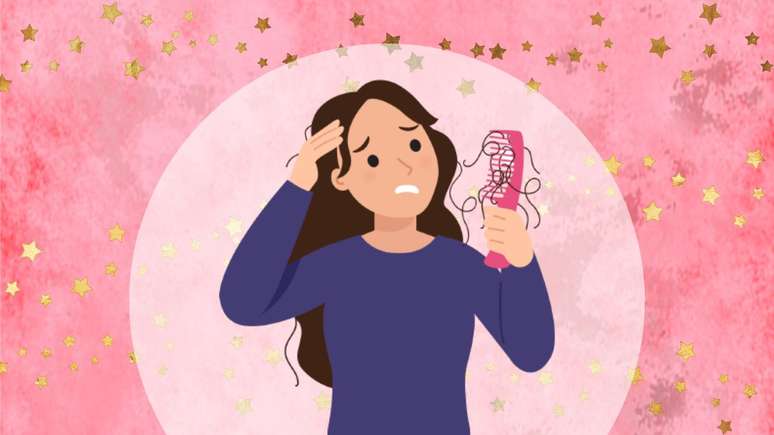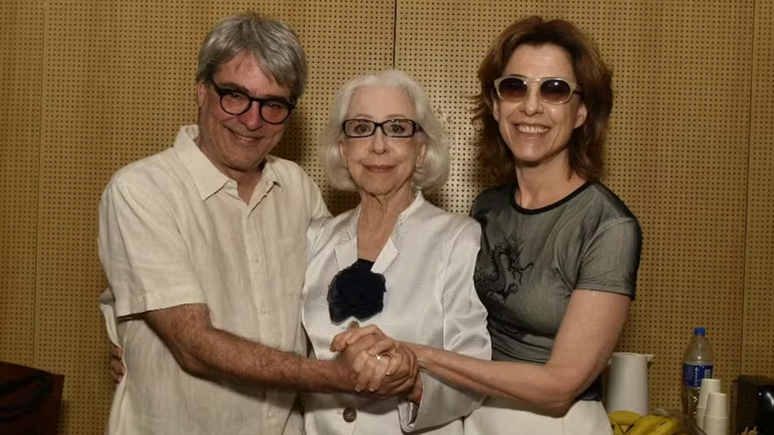The writer recovered only when the child was eight months old; he today he helps other women facing the same
According to the Oswaldo Cruz Foundation (Fiocruz), the baby blues is identified in more than one mother of newborns, in a group of four, in Brazil. The disorder can foster a lack of connection with the child, extreme tiredness, anxiety, and a lot of guilt. Symptoms that the writer Beatriz Singer, 43, strongly felt after giving birth to her first child, Leonardo, who is now 10 years old.
“It was my childhood dream to be a mom. At 12, while my friends had stationery albums, I had a picture of children that I cut out of magazines. It was a passion,” she says. The dream was fought and conquered through IVF, in 2013. “When I found out, it was the best day of my life,” she says. But that all changed just before she was released from the hospital.
“They were difficult days, I had no bond with my son. In fact I wanted him away from me and, in an attempt to save my previous life without this anguish, I wanted him to go away, to be taken away by some congenital disease”, declares writer Beatriz Singer. It’s still hard to admit it, even ten years after being diagnosed with postpartum depression. “I felt something was wrong. At home I had a lot of anxiety, I didn’t know what to do with him. All of this made me see the baby as a constant source of demand and why I couldn’t rest.”
After years of dreaming about pregnancy and motherhood, Beatriz blamed herself for the feelings she was having, as well as her performance as a mother and as a woman. After all, society expects women to want and celebrate motherhood. “People celebrate the birth of a child, but there is also the death of a woman.”
In this quest to be who she was before, Beatriz dreamed of relief. “I wanted to be able to sleep, I wanted to get bored again,” she says. Postpartum depression has many levels and can last for months after the baby is born. In the case of Beatriz, after a healthy and harmonious pregnancy, things began to change on the third day of her son Leonardo’s life. Any setback, from the most complicated to the most banal, was a great catastrophe for Beatriz. “The sound of her crying when she woke up was something that made me anxious. I was shaking, I lost 14 kg in two weeks, I couldn’t leave the house ”, she says.
She says she felt completely alone. “It doesn’t matter who is around you in this condition. You are alone because no one there is a mother, no one is depressed like you”. Because she didn’t feel worthy of being a mother, she Beatriz started flirting with suicidal thoughts. “The cycle kept starting over, so I figured I’d end it all. I had my suicide note ready in my head.”
Ups and downs until healing
Although she had had two episodes of depression in the past, having received psychiatric treatment during her pregnancy, she thought she was safe. “On the fifth day my psychiatrist put me back on my meds and asked me to move into my mother’s house, where I would have 24-hour supervision for both my son and myself,” he says. After a month, there was a significant improvement, but Beatriz still struggled with the bond with her son.
“What healed me was just what they told me not to do: leave my support network, that I let take over functions that should have been my own,” she says. So, when her husband received a job offer in New York, Beatriz plunged headlong into her motherhood. “I had to take care of Leo all day and that forced me to make a greater connection.” Of course, the medications, time, and therapy helped, and eight months after giving birth, Beatriz felt healed.
Another thing that played a key role in this improvement was blogging, which she started even before becoming a mother, to tell her emotions.
When Leonardo was 3 years old, Beatriz discovered she was pregnant with Catarina, who is now 7 years old. “When I found out I was very afraid it would happen again. But I realized I really wanted it, so we moved on,” she says. Her daughter was born and made an instant connection with her mother. “Which on the one hand is wonderful, but on the other it fills me with guilt.”
During the pandemic he managed to transform his pains and fears into the book out of season, which brings an intense and candid account of postpartum depression. “I’ve told absolutely everything I’ve been through. Today I’m not ashamed of what happened because I know it’s a disease. No mother chooses to go through that.”
Source: Terra
Ben Stock is a lifestyle journalist and author at Gossipify. He writes about topics such as health, wellness, travel, food and home decor. He provides practical advice and inspiration to improve well-being, keeps readers up to date with latest lifestyle news and trends, known for his engaging writing style, in-depth analysis and unique perspectives.








